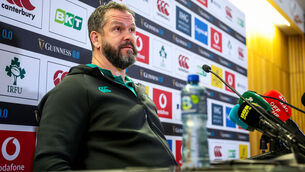Limerick leader leaves a legacy of bravery and commitment
But he could also see the funny side of things and was the most engaging of company, never shy to express his views from which he rarely budged unless you came up with a particularly good argument.
Looking back on a career that earned him so many plaudits and honours but a desperately meagre three Irish caps, I easily visualise a back-row forward of enormous strength, a big man of 15 stone 8 lbs and 6 ft 1 inch tall, a natural footballer endowed with all the attributes that would have made him a huge success in the modern professional game.















